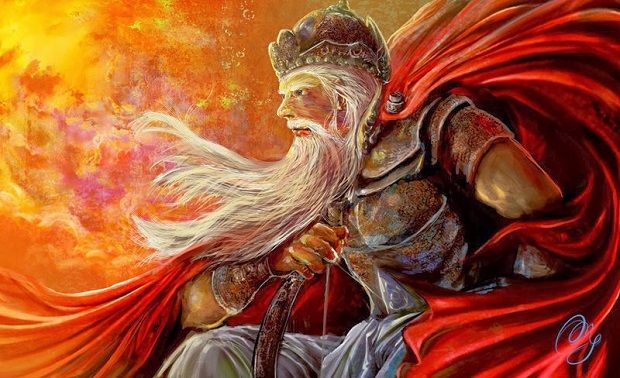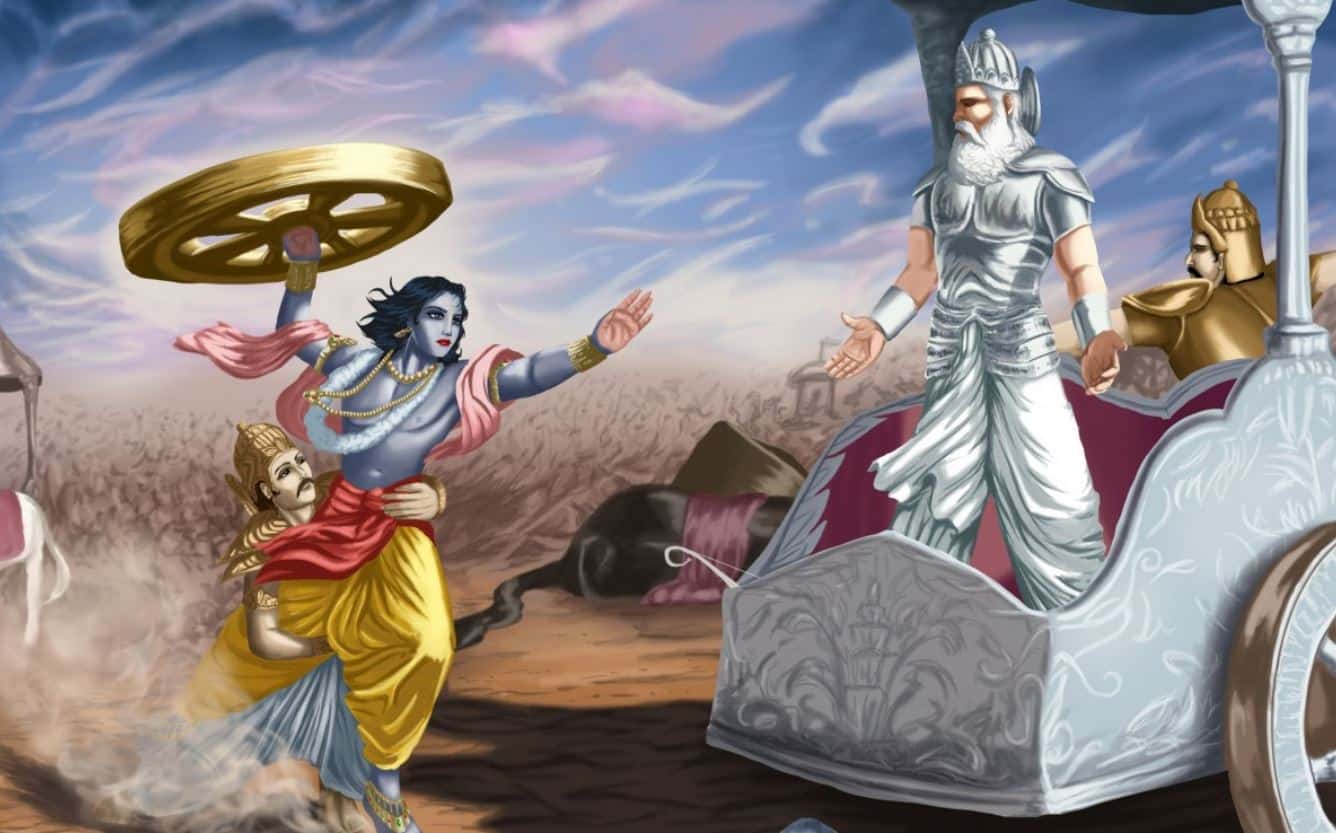
Bhisma in Mahabharata: A Character Sketch

Bhisma: A Devoted Son, A True Patriot, A Selfless Statesman
Our lives are filled with interesting characters. They have virtues. They have vices. They can sometimes be inspirational, while at the same time ironical.
Beyond viewing them through the narrow lenses of heroes and villains, good or evil, characters in themselves are unique and come in different shades.
Unlike our popular imagination characters don’t perfectly fit in the “good” or “bad” category. Sometimes they can be idealistic, while at different scenarios, they can turn selfish and pragmatic.
Each character is a rainbow in themselves. There is the great, the good, the bad and the ugly all within the same heart and mind.
Mahabharata, is one such epic that is full of interesting characters. If we look religion beyond way of life and identity and more towards wellbeing and wisdom, even characters can turn lively and fascinating!
Apart from being the fountainhead of Bhagwat Geeta, Mahabharata is an epic that celebrates roles. The role of a King, the role of a teacher, the role of a friend, the role of a son, the role of an advisor, and much more.
As a kid, I enjoyed B.R. Chopra’s Mahabharata series. Fortunately, I got to revisit them again, and this is when I thought of doing some character sketches.
As a disclaimer, these character sketches are done out of my own personal passion viewed through my lenses. I, do not hereby claim any sort of legitimacy from scriptural point of view. The character sketch is largely based on as portrayed in the series.
Pitamaha, Gangaputra Bhisma is another iconic character of Mahabharata.
1. A Story of a Son’s Sacrifices for His Father
In today’s time, we hear countless stories of a father’s sacrifice for his children. From small, little sacrifices to big ones for their child’s happiness and future. But Bhisma’s story is one rare tale of a son’s sacrifice for his father’s happiness.
When Bhisma comes to know that his father Shantanu is unhappy and is unable to marry the girl of his choice due to a condition requiring Bhisma to relinquish the royal throne, Bhisma readily agrees. Moreover, in order to avoid the conflict of interests between his own lineage and that of his half-brother, he makes a vow to remain celibate throughout his life.
This is how Devavrata, becomes Bhisma after undertaking a “Bhisma”, which means a “fierce” vow. So, Bhisma is a character who not gives up the royal throne, but also the pleasures of a conjugal life and parenthood for his father’s happiness. His story is also a story of immense devotion, love and sacrifices.
2. A Man of Integrity, Ethics, and Patriotism
Despite being a valiant warrior, Bhisma decides to honor Amba’s vow and avoids shooting down Shrikandi, instead choosing to be slain by Arjun’s numerous arrows. In this manner, not only did he respect his own principles, but also honors Amba’s vow.
Even when he was on his deathbed of arrows, he was conscious of fulfilling his duties as the caretaker of the kingdom of Hastinapur. The series depicts how he gives deep and insightful advices on statesmanship and leadership to Yudhishthira on his deathbed, and chooses to bear the pain for 58 nights ensuring that the leadership transition of Hastinapur is smooth and proper.
Bhisma is an epitome a statesman, who not only plans for the wellbeing of nation throughout his tenures, but also ensures the future lies in safe and sound hands. He is a true and self-less leader in this regard.
3. Entangled Within Family and Vows

During the battle, as Arjun seems to be lenient on Pitamaha Bhisma, Shree Krishna himself decides to attack Pitamaha Bhisma with a chariot wheel. This would mean Shree Krishna would have to break down his vow of not fighting in the battle.
Here, the series depicts an interesting conversation where Pitamaha Bhisma asks Shree Krishna, “What is my crime?”
Shree Krishna replies- “Ignorance”.
Shree Krishna states that Bhisma, despite being ethical and learned was so entangled within his vow and family, that he turned a blind eye towards the greater wellbeing of the world.
Krishna explains that while his selflessness was a great virtue, being indecisive and placing greater value on fulfilling a vow rather than serving the society and preserving justice was inappropriate.
4. A Passive Spectator to Intervention-able Injustice
Bhisma was the Pitamaha, the family elder and it a part of his responsibility to make sure that injustice did not happen to Draupadi and the Pandavas.
However, be it due to his vow, predicaments or compulsions, he could not intervene to stop the injustices happening all round. He despite being the Pitamaha, or the family elder was unable to intervene or voice opposition when Draupadi was being dishonored and Pandavas were being denied justice.
The series also depicts Pitamaha Bhisma admitting to this and stating that he was paying for the sins with the bed of arrows. He, however, was mostly on the side of “Dharma” or “Righteousness” and wanted the Pandavas to win.
Bhisma is a character who symbolizes self-less service, statesmanship, devotion and integrity.
Appreciate the creator